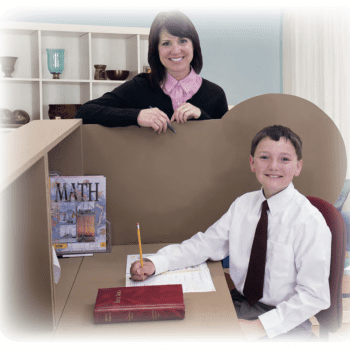A recent comment by J on Homeschoolers Anonymous’ crosspost of my post about the Josh Powell story caught my eye.
In general, I appreciate your efforts to lobby HSLDA to be more sensitive to issues like this, but I think it’s important to remember that HSLDA provides legal services and is bound by certain ethical and legal duties that could prevent it from expressing sympathy for Josh Powell. If HSLDA represents a party involved, they have an ethical responsibility not to make public statements that could be construed as admissions against their client’s interest.
In other words, J argues that HSLDA couldn’t respond with compassion to Josh Powell’s story of educational neglect because the organization has a legal duty to protect its members—including, presumably, Josh Powell’s parents—at all cost.
(I would make several points here. First of all, because of the nature of Virginia’s religious exemption law, Josh’s parents broke no rules by not educating him, and there are therefore no charges being pressed, so even if Josh’s parents are HSLDA members HSLDA is not currently representing them in some sort of suit. And second, being someone’s lawyer doesn’t mean you can’t make general statements about something being morally bad—being OJ’s lawyer, for instance, didn’t mean you couldn’t say murdering your wife was a bad thing to do. I think what’s actually stopping HSLDA from expression compassion int his sort of situation is their lobbying efforts in favor of unrestrained parental rights.)
Regardless of whether or not J is correct, I think his comment brings up an important point—HSLDA defends the interests of homeschool parents, not the interests of homeschooled children. This is actually something I’ve discussed before:
HSLDA protects homeschool parents’ interests and homeschool parents’ rights, not homeschooled children’s interests or homeschooled children’s rights.
This fact should be especially troublesome to anyone who was homeschooled, to those who like me grew up on the HSLDA literature our parents received and grew up on the HSLDA talking points our parents recited. HSLDA cared about our parents, but the organization didn’t care about us. Think about that for a moment. HSLDA was there to defend your parents’ right to homeschool, no matter what. HSLDA set about systematically eliminating safeguards that would have ensured that homeschooled children receive an education, and safeguards that would have protected homeschooled children against abuse. HSLDA has opposed even laws that would have simply required that your parents register as a homeschool with the state board of education, so that someone would at least know that you existed. HSLDA set about putting all of the power in the hands of your parents, but during all that time they never gave a second thought about you.
Again, J’s response might be “well, duh, they’re lawyers, that’s how it works.” Even if that’s true, that in and of itself is a problem. That the largest homeschool advocacy group in the country can’t even bring itself to condemn educational neglect perpetrated by homeschool parents, and instead defends homeschool educational neglect as in and of itself something that’s just fine, that should be a red flashing light that something is wrong.
But there’s more here than that, at least for me.
I never saw HSLDA as simply my parents’ lawyers (and yes, my parents have been HSLDA members since I was small). I also saw them as my defenders. I thought HSLDA cared about me. I really did. I’m sure this is true of many other homeschooled children growing up in HSLDA member families—we didn’t see HSLDA as simply lawyers at all, we saw them as our protectors and heroes. When I met Michael Farris when I was sixteen, I couldn’t have been more proud and excited. So for me at least, there is a sense of betrayal. I thought HSLDA cared about me, not just about my parents, and their response to Josh Powell’s story is simply one more confirmation that they didn’t.
And to be honest, that may be part of why this bothers me so much.














